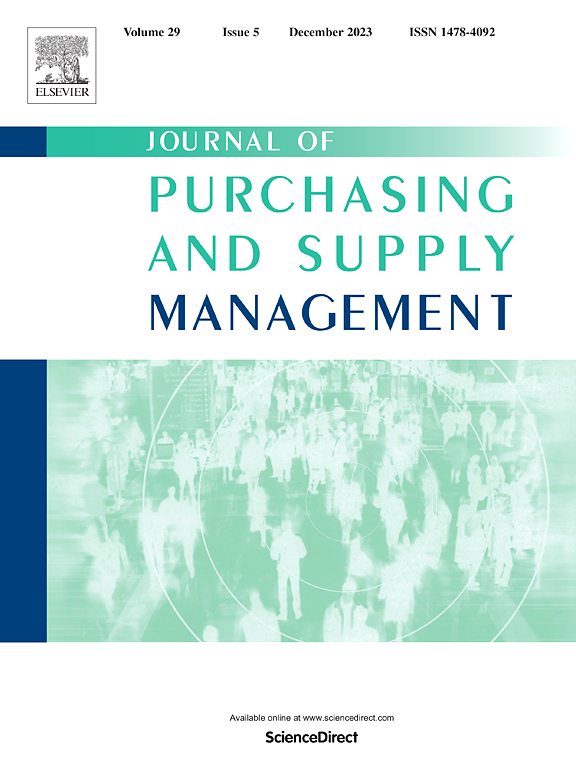Practices and strategies for sustainability-related risk management in multi-tier supply chains
Abstract
This study investigates how sustainability-related risks are managed in multi-tier supply chains. It focuses on the strategies and practices that companies use to manage sustainability-related risks and how these differ between supply chains and supply chain tiers. We use a multiple-case study with 25 companies forming 5 multi-tier supply chains. As a result of this study, we present a conceptual framework for sustainability-related risk management practices in multi-tier supply chains and apply it empirically by defining sustainability-related risk management profiles for the case supply chains. We show that in multi-tier supply chains, companies need direct and indirect collaboration and direct and indirect monitoring practices for managing sustainability-related risks emanating from not only their first-tier suppliers but also lower-tier suppliers. Our framework helps purchasing and supply chain managers understand the dimensions of sustainability-related risk management in a multi-tier setting and develop strategies and practices for mitigating and managing those risks. We also empirically show the challenge of extending sustainability-related risk management practices beyond first-tier suppliers due to the different practices in different supply chain tiers.

 求助内容:
求助内容: 应助结果提醒方式:
应助结果提醒方式:


